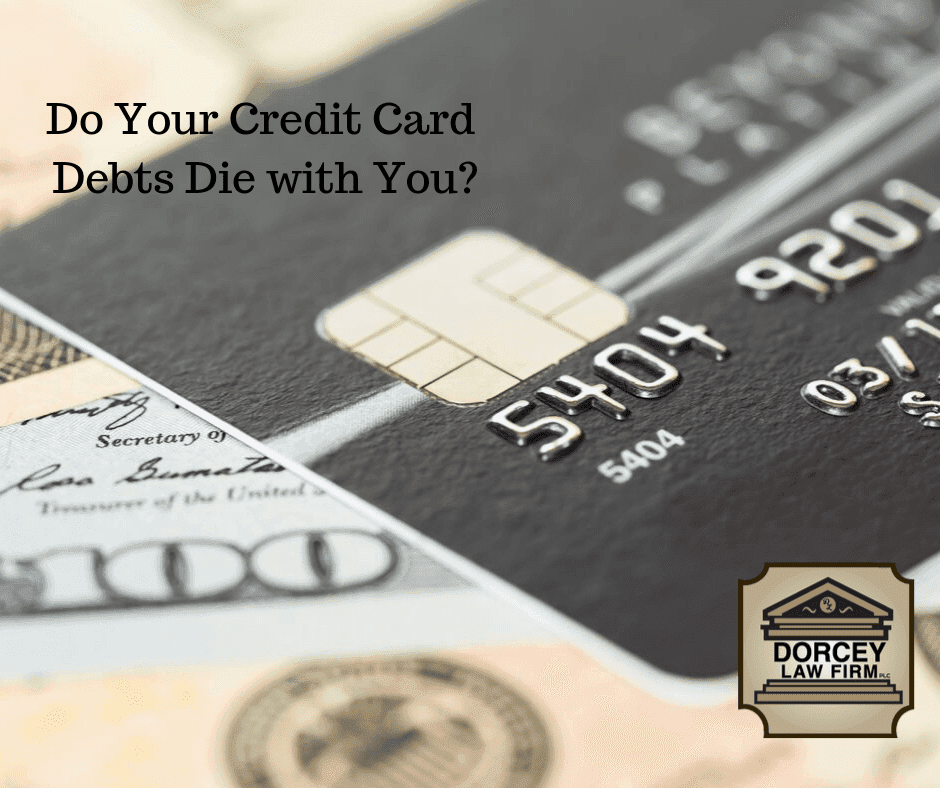 Can you imagine what people would do, if they knew that credit card debt ended when they passed away? Run up enormous balances, pay for grandchildren’s college costs and buy luxury cars, even if they couldn’t drive! However, that’s not how it works, says U.S. News & World Report in the article that asks “What Happens to Credit Card Debt When You Die?”
Can you imagine what people would do, if they knew that credit card debt ended when they passed away? Run up enormous balances, pay for grandchildren’s college costs and buy luxury cars, even if they couldn’t drive! However, that’s not how it works, says U.S. News & World Report in the article that asks “What Happens to Credit Card Debt When You Die?”
The executor of your estate, the person you name in your last will and testament, is in charge of distributing your assts and that includes paying off your debts. If your credit card debt is so big that it depletes your assets, your heirs may be left with little or no inheritance.
If you’re concerned about loved ones being left holding the credit card bag, here are a few things you’ll need to know. Note that some of these steps require the help of an experienced estate planning attorney.
Who pays for those credit card debts when you’re gone? Relatives don’t usually have to pay for the debts directly, unless they are entwined in your finances. Some examples:
- Co-signer for a credit card or a loan
- Jointly own property or a business
- Lives in a community property state (Alaska, California, Idaho, Louisiana, Nevada, New Mexico, Texas, Washington or Wisconsin
- Are required by state law to pay a debt, such as health care costs, or to resolve the estate.
A spouse who has a joint credit card account must continue to make on-time payments. A surviving spouse does not need the shock of learning that their spouse was carrying a massive credit card debt, since they are liable for the payments. A kinder approach would be to clear up the debt.
How do debts get paid? The probate process addresses debts, unless you have a living trust or make other arrangements. The probate court will determine the state of your financial affairs, and the executor, one you name or if you die without a valid will, the administrator named by the court, will be responsible for clearing up your estate.
An unmarried person who dies with debt and no assets, is usually a loss for the credit card company, if there’s no source of assets.
If you have assets and they are left unprotected, they may be attached by the creditor. For instance, if there is a life insurance policy, proceeds will go to beneficiaries, before debts are repaid. However, with most other types of assets, the bills get paid first, and then the beneficiaries can be awarded their inheritance.
The first debt that must be paid is secured debt, like the balance of a mortgage or a car loan. The administration and lawyer fees are paid next, and then unsecured debt, including credit cards, are paid.
How can you protect loved ones? A good estate plan that prepares for this situation is the best strategy. Having assets placed in trusts protects them from probate and creditors. A trust also allows beneficiaries to save time and money that might otherwise be devoted to the probate process. It also puts them in a better position, if the executor needs to negotiate with the credit card company.
Talk candidly with your estate planning attorney and your loved ones about your debts, so that a plan can be put into place to protect everyone.
Reference: U.S. News & World Report (August 19, 2019) “What Happens to Credit Card Debt When You Die?”
